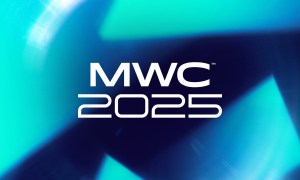

Like Germany lining up Panzer tanks outside Poland, Google has been getting a little aggressive with wireless carriers lately. Bidding on open wireless spectrum, investing in WiMax, hawking smartphones without carrier contracts, and now experimenting with its own fiber-optic Internet service have all gotten carriers a bit antsy, but at Mobile World Congress in Barcelona, Google CEO Eric Schmidt assured attendees it came to play nice.
“We are not going to be investing in broad-scale infrastructure,” Schmidt assured audiences. “It’s a very tough business and it’s not one for which we are very well optimized.”
Instead, Schmidt emphasized the symbiotic relationship he sees between Google and wireless carriers: they provide the airwaves to waft data across, Google will provide services. “We feel very strongly that we depend on the success of the carrier business,” Schmidt said. “We need a sophisticated network for security and load balancing.”
But there were skeptics. During the question and answer period at the end of his speech, one question-asker took Schmidt to task for “stealing operators’ talk minutes” – a likely reference to Google Voice providing a VoIP loophole. “It’s not our objective to steal your minutes,” Schmidt responded.
Don’t expect carriers to let their guard down. Just hours earlier, Vodafone CEO Vittorio Colao singled out both Google and Yahoo for dominating the search and advertising step of the mobile phone business. The friction between these guys has yet to begin.
